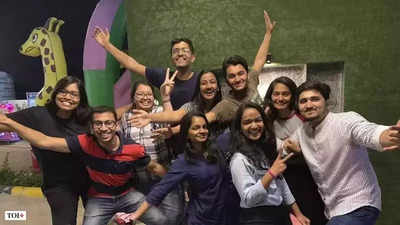Hyderabad: Practical knowledge or hands-on training continues to be lacking in higher education, as hardly 2% of the higher education institutions (HEIs) in the country are offering ‘work-linked degrees‘ despite high demand.
In a report, titled ‘From Classrooms to Careers’, which saw the participation of over 10,000 students from across the country in the age group of 17 to 24 years, it was revealed that about 85% of students see work-linked degrees as the future. The report, which was recently published by TeamLease and Digivarsity, highlights how this dual benefit enhances students’ employability and helps bridge the transition between academia and the workplace.
“It is time to rethink our approach to education, to innovate boldly, and to ensure that our youth are empowered with the tools they need to build a brighter, more prosperous future for themselves and for India,” said TeamLease founder and CEO Shantanu Rooj.
Faculty and academicians, meanwhile, said that unless the govt mandates each college to tie up with a company, work-linked learning (WLL) — internships, apprenticeship-embedded degrees, and modular, flexible programs, among others — will not be possible.
“Unfortunately, we do not have this culture here in India. While in the West, students simultaneously learn and work, making utmost use of WLL, that is not the case here. For more colleges to offer work-linked degrees, the rules need to be simplified so that a decision can be made at the college level by the principal or head of the department,” said M Manzoor Hussain, former registrar of Jawaharlal Nehru Technological University, Hyderabad (JNTUH), adding that the govt should make it mandatory to have academia-industry tie-ups.
Hussain, who has over 35 years of experience in the teaching field, said students, on their part, should make the most of such opportunities by taking a break year to do internships or apprenticeships in the industry to gain practical experience.
The higher education officials said that they are working along these lines and will be making it mandatory for technical and professional courses students to do internships. “This should be in place by the coming academic year. To enhance the practical knowledge of students, we are revamping the entire syllabus of undergraduate courses, both technical and non-technical, and will make spending time in the industry – internships or apprenticeships, mandatory,” said Telangana Council of Higher Education secretary Sriram Venkatesh.
He also said that the govt should strictly implement the Apprentices Act so that companies will open their doors to students.








